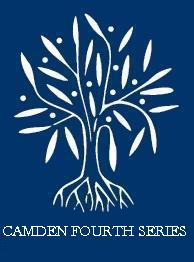No CrossRef data available.
Article contents
Guilford Muniment Room LM 1066 / 1–10. Mid-summer Quarter Sessions at Guilford. 1736
Published online by Cambridge University Press: 21 December 2009
Extract
We are met here on the solemn Occasion of putting those Laws into Execution wch relate to the Preservation of the Peace; & as the Necessity of Government flows from the Corruption of Human Nature so the thought the Glory and Honour of it consist in the regular Administration of Justice, & as without it the one Societys cannot be upheld, so without the other all communitys would be little better than well modell'd combinations to oppress, cheat & ruin the weaker & submitting part of mankind. Not but that the advantages of a political union are so inconsiderable, yt it may be doubted whether Tyranny it self tho never so unlimited, never so grievous, be not rather to be chosen than a wild & corrupt state of anarchy. This state exposes men to the frauds & violence of their neighbours & the extravagant Caprices of the People, the other Subjects whole Nations to the mad Frolicks, & brutal Passions of a Flatter'd & [2] an abus'd Tyrant. Both Extreams are very dreadful & as much to be deprecated as the raging pestilence or any Common calamity; while the mean between them from wch they Both so far deviate, is a Copy well drawn from ye great & not to be equalled Original of God's Government of the World. Whose only End is to promote the Happiness of His Creatures; as the Peace, Safety & publick Good of the People ought to be no less ye aim of all Rulers than it is the Reason Why Government was first instituted.
- Type
- Research Article
- Information
- Copyright
- Copyright © Royal Historical Society 1992
References
page 287 note 1 It might be A Proclamation for putting into Execution the Laws made to prevent Tumults and Riotous Assemblies, 5 Feb. 1736?
page 287 note 2 Refers to a time when George II was away in Hanover.
page 295 note 1 This is an allusion to the usual Dying Speech and Confession of A.B.… often written and published by the Ordinary of Newgate; for which see Linebaugh, P., “The Ordinary of Newgate and His Account,” in, Crime in England 1550–1800, ed. Cockburn, J. S. (London: Methuen, 1977), 246–69.Google Scholar
page 295 note 2 A frequent complaint that in former ages, criminality was of lesser extent and lesser range, and to be found under the pen of many writers of the 18th century.
page 296 note 1 Cf Hogarth, , The Harlot's Progress, Plate 1, (1732)Google Scholar. Mother Needham and the infamous Colonel Charteris were still in everybody's memory.
page 300 note 1 War was declared on Spain, 19 October 1739.
page 301 note 1 Gen: 27, 22.


